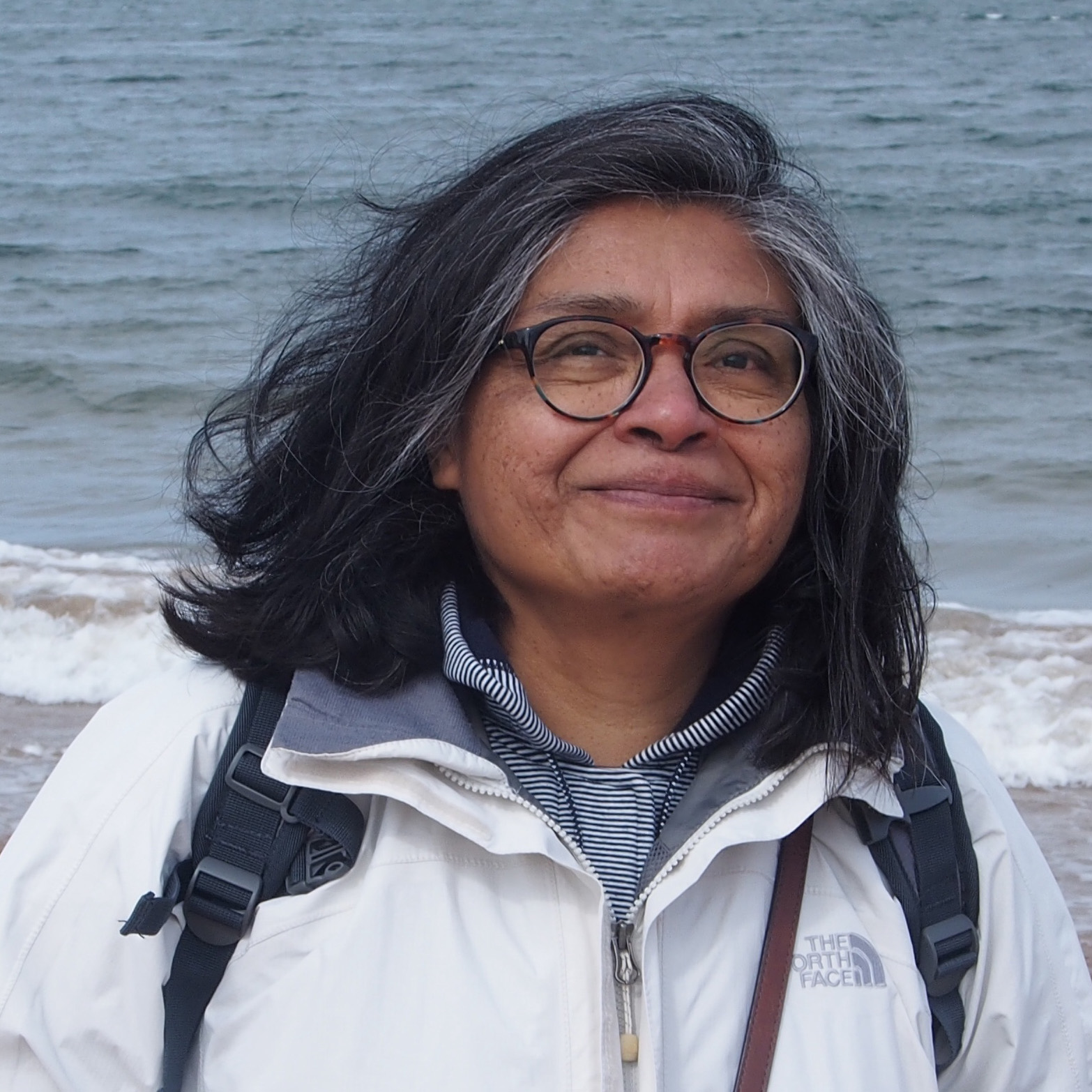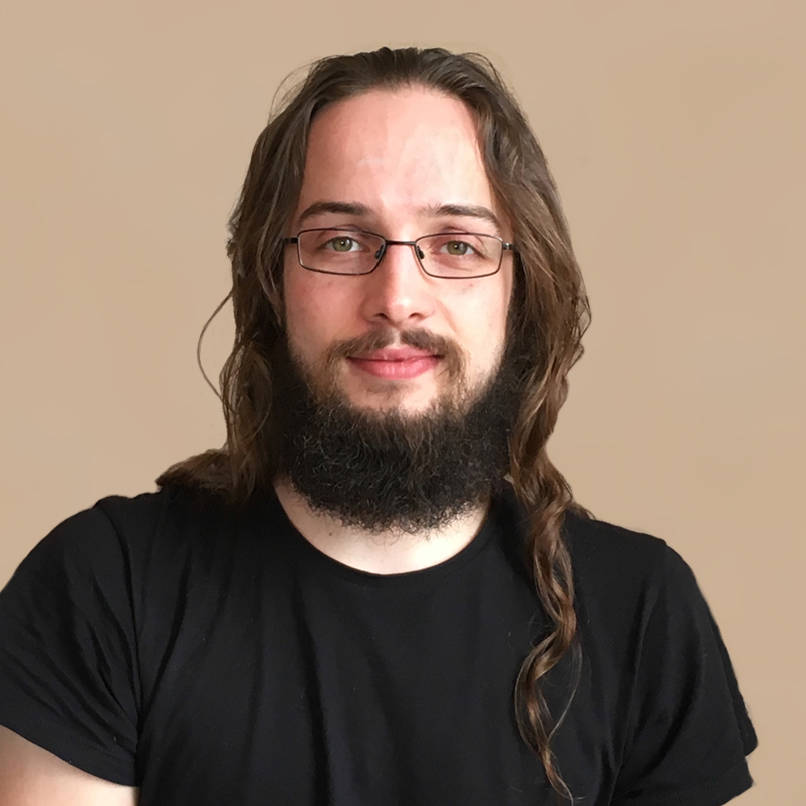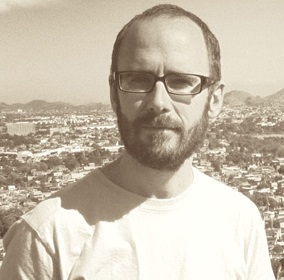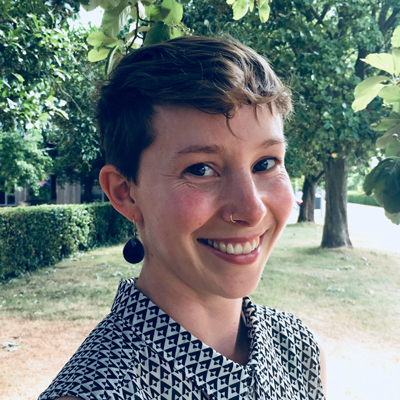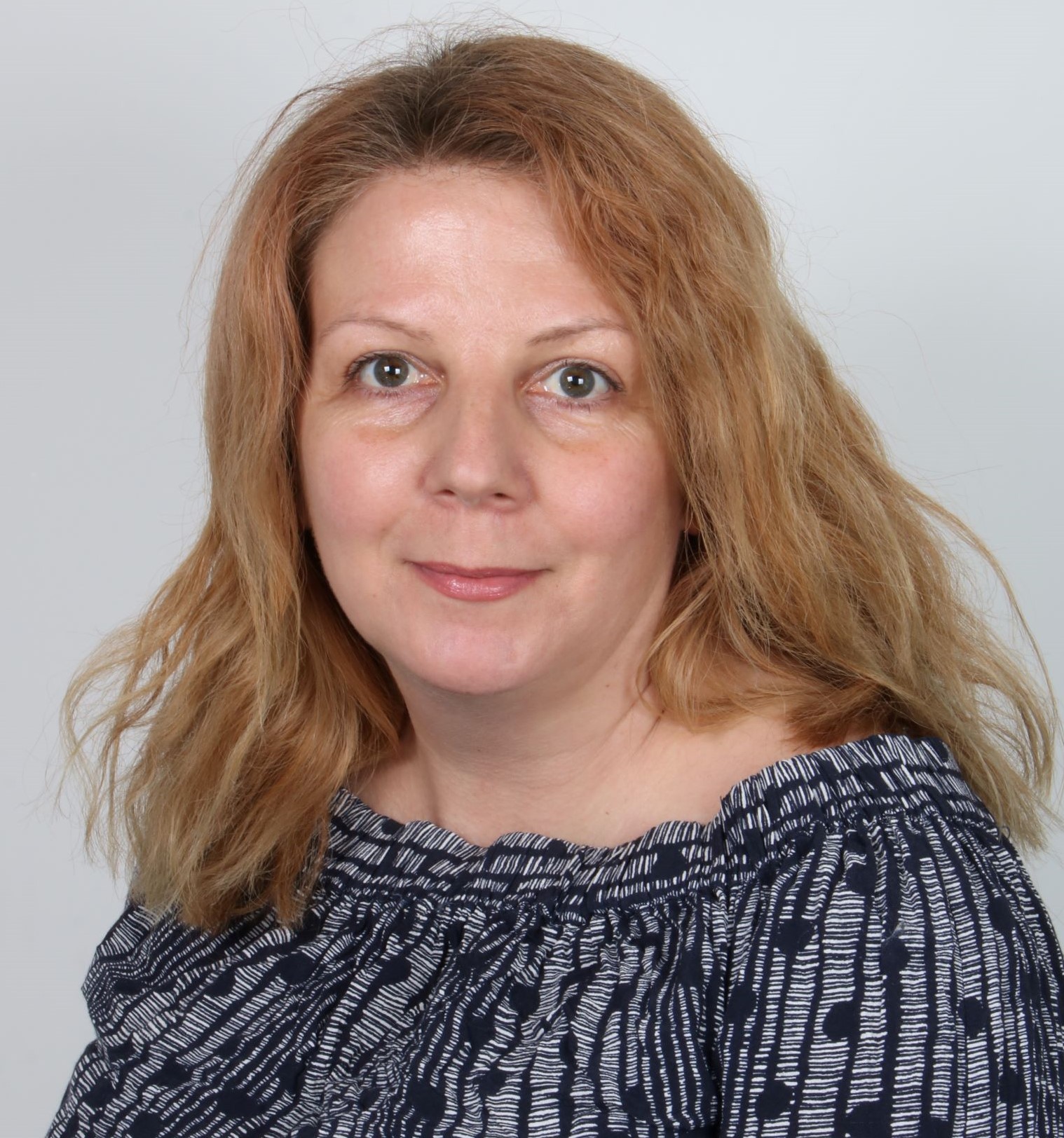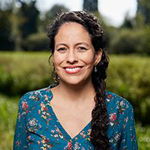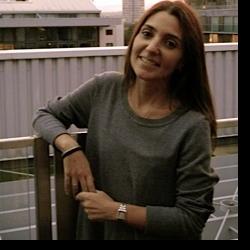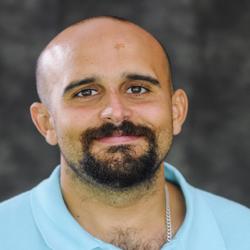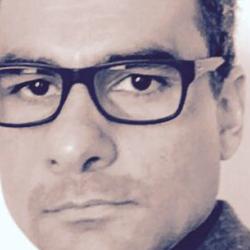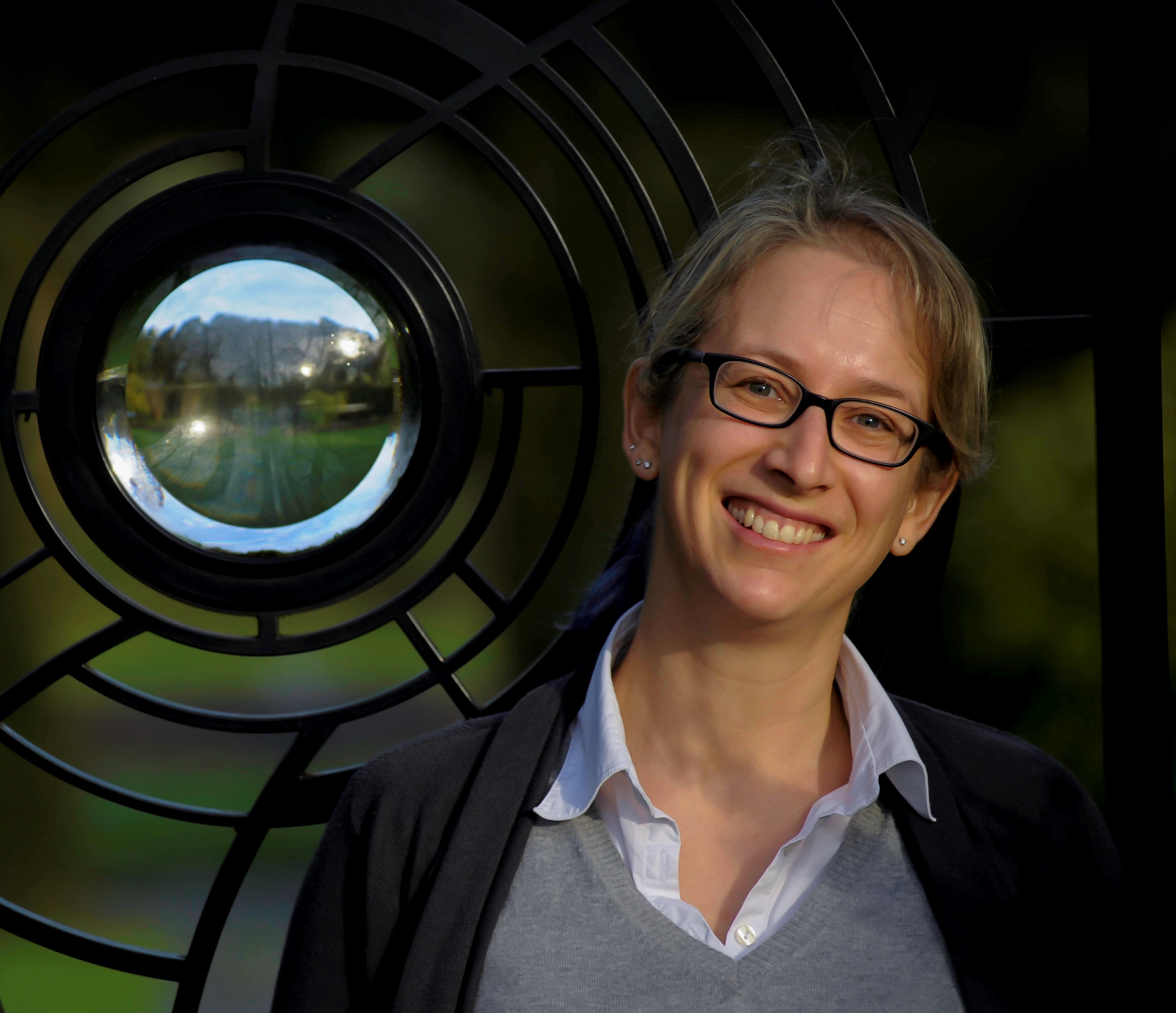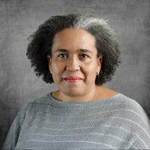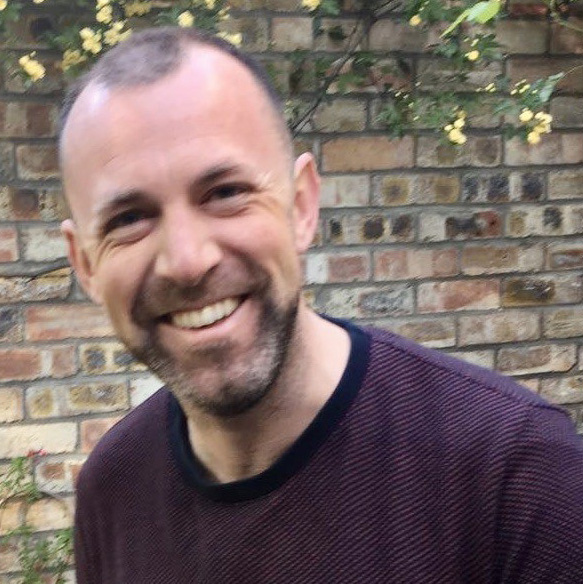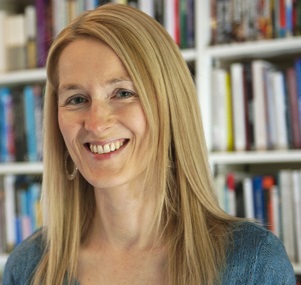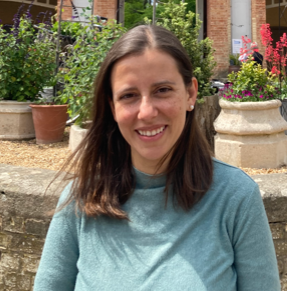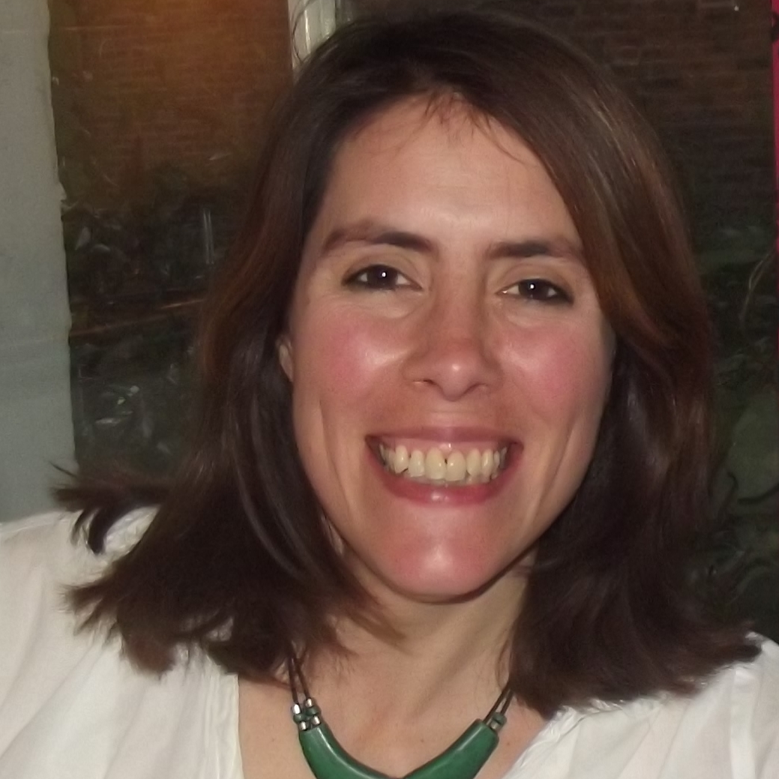Academic Staff
Core academic staff at the Centre of Latin American Studies
|
Prof Gabriela Ramos (History) Director of the Centre of Latin American Studies / CLAS MPhil Director |
Dr Graham Denyer Willis (CLAS / Development) University Associate Professor |
|
Dr Pedro Mendes Loureiro (CLAS) University Associate Professor / CLAS PhD Director |
Dr Carlos Fonseca (MMLL) MPhil & PhD Director Michaelmas 2023 |
|
Dr Sarah Abel (CLAS) British Academy Fellow |
Dr Lorna Dillon (CLAS) Leverhulme Early Career Fellow |
Other university staff teaching regularly at CLAS
(also see Associate Staff)
Dr Stephanie Rohner (Spanish & Portuguese)
| Prof Maite Conde (Spanish & Portuguese) | Dr Natalia Buitron (Social Athropology) |
| Dr Geoffrey Maguire (Gonville & Caius College) | Dr Hank Gonzalez (History) |
| Dr Felipe Hernández (Architecture) | Prof Geoffrey Kantaris (Spanish & Portuguese) |
| Mr Michael Kuczynski (Pembroke College) | Prof Sian Lazar (Social Anthropology) |
| Dr David Lehmann (Sociology) | Dr Ella McPherson (Sociology) |
| Prof Mónica Moreno Figueroa (Sociology) | Dr Rory O'Bryen (Spanish & Portuguese) |
|
Prof Joanna Page (MMLL) currently on secondment as Director of CRASSH |
Prof Sarah A Radcliffe (Geography) |
| Dr Stephanie Rohner (MMLL) |
Affiliated Lecturers
(also see Associate Staff)
In addition to the full-time staff members listed above, CLAS benefits from the teaching provided by part-time lecturers who are formally affiliated to the Department of Politics and International Studies, its ‘parent’ Department.
| Dr Grace Livingstone (POLIS) |
Gabriela Ramos
Director of the Centre of Latin American Studies; Director of Graduate Studies
Gabriela Ramos is a University Professor in Latin American History in the Faculty of History, and Fellow at Newnham College. She specializes in the colonial history of the Andes. Her research interests include religion, culture, and politics in colonial and modern Latin America. Her book Death and Conversion in the Andes. Lima and Cuzco 1532-1670 (Notre Dame, IN: University of Notre Dame Press, 2010) won the Howard F. Cline Prize 2011, for its contribution to the history of indigenous peoples in Latin America. She has recently co-edited Indigenous Intellectuals: Knowledge, Power, and Colonial Culture in Mexico and the Andes (Duke University Press, 2014) with Yannis Yannakakis. She teaches the Race and Ethnicity module on the MPhil in Latin American Studies.
Pedro Mendes Loureiro
Associate Professor at the Centre of Latin American Studies. PhD Director
Pedro Mendes Loureiro is Associate Professor of Latin American Studies at the Centre of Latin American Studies (CLAS) and the Department of Politics and International Studies (POLIS). Primarily a political economist, at the heart of his work is a commitment to interdisciplinarity and methodological pluralism, with interests ranging wide across the social sciences. Substantively, Pedro is a scholar of inequality and of development strategies, with the ultimate goal of helping combat social inequalities in all their forms and wherever they might arise. He has researched and published on the political economy of development strategies in Latin America; on the changing dynamics of race, class and gender inequality; on social policies and their politics; on inequality measurement; and on the history of Latin American social thought. Pedro also collaborates with development agencies and NGOs in devising frameworks and policies to tackle multidimensional inequalities.
Pedro's current research focusses on the expansion of the prison system and the political economy of incarceration in Brazil. It is funded by the Leverhulme Trust and the Harry Frank Guggenheim Foundation.
Until September 2023, Pedro was a Fellow of Fitzwilliam College, where he directed studies for the Human, Social and Political Sciences (HSPS) and History and Politics Triposes. He supervises for several UG papers (POL1, POL4, POL5/19, POL9, Dissertations).
Graham Denyer Willis
Graham Denyer Willis is a University Professor at the Centre of Latin American Studies and the Centre of Development Studies, and Director of Studies in Geography at Queens’ College. His work brings together debates about public security, state-society relations and urbanization to raise and address new questions and understandings of development, security and governance in cities of the Global South. His first book, The Killing Consensus: Police, Organized Crime and the Regulation of Life and Death in Urban Brazil (California 2015) is based on research carried out alongside homicide and other detectives in São Paulo from 2009-2012. He has also written about cloned cars, why homicide rates aren't all that helpful and the ways that Brazilian cemeteries materially mingle violence and terror, past and present.
Geoffrey Maguire
Geoffrey Maguire is a Fellow in Spanish at Gonville & Caius College and a College Lecturer at Emmanuel College. He specialises in contemporary Latin American film, literature and visual art, with particular interests in cultural memory, queer representation, and sexuality and gender.
Geoffrey is the author of The Politics of Postmemory: Violence and Victimhood in Contemporary Argentine Culture (2017) and, with Rachel Randall, New Visions of Adolescence in Contemporary Latin American Cinema (2018). His current monograph explores the filmic representation of queer sexualities through theories of temporality and embodiment, and is entitled Bodies of Water: Queer Trends in Contemporary Latin American Cinema. More broadly, Geoffrey is interested in the intersections of politics and culture in contemporary Latin America, as well as in theoretical debates surrounding performance, masculinities and post-conflict cultural memory, particularly the Falklands/Malvinas conflict.
Geoffrey teaches and lectures broadly on undergraduate papers for the Section of Spanish and Portuguese, as well as on the MPhil courses in MMLL and the Centre of Latin American Studies. He also supervises Year Abroad Projects, Optional Dissertations, MPhil essays and theses on a broad range of topics in Hispanic and Lusophone cinema, literature and visual art.
Geoffrey is currently the PhD Director for the Centre of Latin American Studies, and he welcomes questions from prospective doctoral students.
Sarah Abel
British Academy Fellow
Sarah Abel holds a British Academy Postdoctoral Fellowship at the Centre of Latin American Studies. As a social anthropologist with an interdisciplinary background, her research specialises in the dynamics of racisms and antiracisms in American societies. Sarah's current project focuses on representations of skin colour in art, science and politics in Mexico, and her work is broadly concerned with how scientific technologies (DNA tests, genealogies, photography, colour palettes) have been used to construct and deconstruct relationships between ancestry, identity, and the body. To date, her research has centred particularly on slavery and its legacies in the Atlantic World, and she has conducted fieldwork in the US, Brazil, Iceland, and Cuba. Sarah’s publications cover topics such as DNA ancestry testing, concepts of Blackness in American societies, and the socio-political dimensions of family history research. Her monograph, Permanent Markers: Race, Ancestry, and the Body after the Genome, was published by University of North Carolina Press in 2022.
Lorna Dillon
Leverhulme Early Career Fellow
Lorna Dillon is a Leverhulme Early Career Fellow. Her research focus is Latin American textile art. Her current project explores the link between symbolic representations and human rights through the analysis of transnational art movements and diasporas. Lorna is looking at embroideries, quilts and arpilleras (appliqués) created by artists and art collectives in Colombia, Mexico and Chile.
Lorna's doctoral research was on the embroideries, papier-mâché sculptures and oil paintings created by the Chilean artist Violeta Parra and this led to two books, the edited volume Violeta Parra: Life and Work (Tamesis, 2017) and the monograph Violeta Parra's Visual Art: Painted Songs (Palgrave, 2020).
Lorna's work confronts exclusionary biases in the art world, particularly with regard to crafts, participatory textile art movements and the art of the Global South. Her other interests include the decolonisation of art history, Surrealism, Pop art, muralism and the translation of theatre.
Lorna’s work has been recognised with awards from the Arts and Humanities Research Council, the British Academy, the Leverhulme Trust, the Henry Moore Foundation and the Institute of Fine Art of the University of New York.
She is currently a research fellow at Murray Edwards College and an Isaac Newton Trust fellow. She is also a Fellow of the Higher Education Academy.
Other University staff teaching regularly at CLAS
The academic staff below teach regularly for the Centre whilst being formally attached to other University departments.
Natalia Buitron
Natalia Buitron is a socio-political anthropologist exploring institutional creativity, political subjectivity, and indigeneity. She has completed long-term fieldwork with the Shuar of Ecuadorian Amazonia and is interested in Latin America. The main objective of her research is to understand how humans create institutions in a way that takes into account indigenous political projects. This work centres on exploring how a variety of indigenous social movements reinvent Latin American multicultural governance from the bottom up.
Maite Conde
Maite Conde is University Professor of Brazilian Studies and Visual Culture in the Department of Spanish and Portuguese. She specialises in Brazilian literature, cinema and cultural theory. She is the author of Consuming Visions. Cinema, Writing and Modernity in Brazil (Virginia University Press, 2012), for which she was received the Andrew Mellon/MLA award and Foundational Films. Early Cinema and Modernity in Brazil (University of California Press, 2018) for which she received the Antonio Candido Prize (honourable Mention) for the best book in the humanities by the Brazil Section of the Latin American Studies Association and the Richard Wall Memorial Prize (finalist) for the best book on Film or Theatre by the Theatre Library Association. She also edited, translated and wrote the introduction to Between Conformity and Resistance. Essays on Politics, Culture and the State (Palgrave Macmillan, 2011), a collection of key essays by renowned Brazilian philosopher Marilena Chauí, and co-edited a collection of essays by Brazilian film scholar Paulo Emílio Salles Gomes, translated for the first time into English, titled Paulo Emílio Salles Gomes: On Brazil and Global Cinema (University of Wales Press, 2018).
Carlos Fonseca
Carlos Fonseca is a writer and academic. His teaching, writing and research focuses on modern Latin American literature, art and culture, with particular emphasis on concepts of history, nature and politics. He is interested in the intersection between philosophy, literature and art history. He holds a PhD from Princeton University. His research interests include the Caribbean and Central American Literature, Theories of the Postcolonial Imagination, the History of the Avant-Garde, Overlaps of Art History, Philosophy and Literary History, Theories of the Novel and the Historical Archive, and Eco-humanities, among others.
Hank Gonzalez
Hank Gonzalez is a University Associate Professor in the History Faculty specializing in the Caribbean. His book 'Maroon Nation: A History of Revolutionary Haiti' comes out in 2019. His initial research deals with the early years of Haitian independence. He is currently writing a book on foreign influence in the twentieth-century Haitian art business, and pursuing a marine archeology project in Haiti.
Felipe Hernández
Former Director of the Centre of Latin American Studies (2018-21)
Felipe Hernández is an Architect. He was the first Latin American to have been appointed Director of CLAS and remains the first Colombian to have hold a permanent teaching position at Cambridge University.
Felipe teaches architectural and Urban Design, while giving courses and seminars in the Theory and History of architecture and urbanism. Felipe has worked, and published, extensively on Latin America and other areas in the Developing World, including Africa and South East Asia.
Felipe is also Chair of Cities South of Cancer (CSC), an interdisciplinary Research Group whose members work on a wide variety of urban issues in Colombia, Mexico, Argentina, Bangladesh,and Indonesia.CSC collaborates with academic, institutions in USA, Latin America and Indonesia. The group also offers internships and summer courses abroad, and operates as consultant to governmental, non-gevernmental, and private organisations involved in urban research and development in cities around the world.
Felipe is the author of Bhabha for Architects (Routledge 2010) and Beyond Modernist Masters: Contemporary Architecture in Latin America (Birkhauser 2009).
He is also co-editor of Marginal Urbanisms: Informal and Formal Development in Cities of Latin America (CSP 2017), Rethinking the Informal City: Critical Perspectives from Latin America (Berghahn 2009) as well as Transculturation: Cities, Spaces and Architectures in Latin America (Rodopi 2005).
Geoffrey Kantaris
Former Director of the Centre of Latin American Studies (2005-10)
Geoffrey Kantaris is a Professor in the Department of Spanish and Portuguese and a former Director of the Centre (2005-10). He specializes in Latin American urban culture, in particular contemporary cinema. He is preparing a book provisionally entitled Contemporary Latin American Cinema: The Urban Paradigm and has published a wide range of articles in this area. He has also worked on Southern Cone literature. He has published The Subversive Psyche: Contemporary Women's Narrative from Argentina and Uruguay (Oxford University Press, 1996) and Latin American Popular Culture: Politics, Media, Affect (London: Tamesis, 2013).
Michael Kuczynski
Michael Kuczynski is an economist specializing in international, monetary, and financial topics, in particular monetary and fiscal policy; and the relationship between financial activity and economic growth. He also works on Latin American economic issues, on problems of comparative national economic performance, and on primary commodity markets. He is at the Centre of Development Studies and a fellow of Pembroke College. He teaches on the MPhil in Development Studies, the MPhil in International Relations and the MPhil in Latin American Studies (Economic Issues in Contemporary Latin America).
Sian Lazar
Sian Lazar is a Professor in the Department of Social Anthropology. Her research interests include social movements, especially labour movements; ethnography of the state, democracy and citizenship; gender; the city; and the anthropology of politics and development, with a particular focus on Bolivia and Argentina. Her research is focussed on collective politics in Buenos Aires, Argentina, and El Alto, Bolivia. She is the author of various articles on these topics, as well as El Alto, Rebel City: Self and Citizenship in Andean Bolivia (Duke University Press, 2008), and The Social Life of Politics: Ethics, Kinship and Union Activism in Argentina (Stanford University Press, 2017). The first has been published in Spanish translation in Bolivia by Plural (2013), and the second is forthcoming in Argentina with Siglo xxi in mid-2019. She has also co-edited journal special issues on the Bolivian uprisings of 2003, the anthropology of citizenship, and precarious labour, and is the editor of Where are the Unions? Workers and Social Movements in Latin America, the Middle East, and Europe (Zed books, 2017), and The Anthropology of Citizenship. A Reader (Wiley-Blackwell 2013). She is one of the joint editors of the Journal of Latin American Studies.
Ella McPherson
Mónica Moreno Figueroa
Mónica Moreno Figueroa is University Professor in Sociology at the University of Cambridge and a Fellow at Downing College, Cambridge. Her research has primarily focussed on Mexico and Latin America more broadly. The interest in researching the 'qualities' of the lived experience of racism, has taken her to the study of the everyday, the relevance of emotions, issues around gender, visibility and embodiment as well as exploring the links with anti-racist practice, political activism and collaboration. Currently, she is developing various research strands: a project on Anti-Racism in Latin America, with Prof Peter Wade (Manchester); a project on the gendered experience of racism and racial identification alongside economic trajectories in Mexico's Costa Chica, with Dr Emiko Saldivar (UCSB); and a project on institutional and state racism exploring access to health, water and recognition of rights in the state of Oaxaca, Mexico, with Dr Juan Carlos Martinez (CIESAS).
Rory O’Bryen
Rory O’Bryen is Associate Professor of Latin American Literature and Culture in the Department of Spanish and Portuguese. He has published Spectres of La Violencia: Literature, Testimony and Cinema in Contemporary Colombian Culture (2008), Latin American Popular Culture: Politics, Media, Affect (2013), Latin American Cultural Studies: A Reader (2015), and Transnational Spanish Studies (2020). His current research explores the representation of the Magdalena River in Colombian culture between 1850 and the present day. It engages with a range of works, including mid-nineteenth-century regional romances, late nineteenth-century Afro-Colombian poetry, the aesthetics and politics of steam in Colombian modernismo, representations of leprosy in early twentieth-century literature, music and silent film, the ‘novela de la Violencia’ of the 1950s, and late twentieth-century engagements with narcotráfico. In doing so it uses the river as a conduit into the fragile interplay between nation-formation and global political and economic processes.
Joanna Page
Former Director of the Centre of Latin American Studies (2014-18)
Joanna Page is a Professor of Latin American Studies. Her research focuses on the relationship between science and culture in Latin America, and she has worked on a range of different media, including literature, film, graphic fiction and visual arts, particularly from Argentina, Chile, and Brazil. She is also interested in questions of memory, modernity, capitalism, posthumanism, new materialism, decoloniality and environmental thought in Latin America. She is the author of six monographs: Crisis and Capitalism in Contemporary Argentine Cinema (Duke University Press, 2009), Creativity and Science in Contemporary Argentine Literature (University of Calgary Press, 2014), Science Fiction from Argentina: Technologies of the Text in a Material Multiverse (University of Michigan Press, 2016), Posthumanism and the Graphic Novel in Latin America (with Ed King, UCL Press, 2017), Decolonizing Science in Latin American Art (UCL Press, 2021) and Decolonial Ecologies: The Reinvention of Natural History in Latin American Art (Open Book Publishers, 2023). She has also co-edited two volumes: Visual Synergies: Fiction and Documentary Filmmaking in Latin America (with Miriam Haddu, 2009) and Geopolitics, Culture, and the Scientific Imaginary in Latin America (with María Blanco, 2020). She was the Principal Investigator for the AHRC-funded international research network "Science in Text and Culture in Latin America" (2014-16) and two of her recent research projects have been funded by the British Academy. She is currently the Director of CRASSH, the University’s Centre for Research in the Arts, Social Sciences and Humanities.
Sarah A Radcliffe
Sarah A Radcliffe is Professor of Latin American Geography at the Department of Geography, and Fellow of Christ's College. She specializes in social difference and development geographies, largely in the Andes. Her current research interests include social heterogeneity in development, indigenous engagements with development, and postcolonial social theory.
Stephanie Rohner
Stephanie Rohner is Assistant Professor of Colonial Latin American Literature and Culture in the Faculty of Modern and Medieval Languages. She holds a PhD in Spanish and Portuguese from Yale University.
Her area of specialization is the literature and culture of the viceroyalties of Peru and New Spain with a particular interest in the transatlantic circulation of indigenous literary, historiographical, and visual discourses. One of the questions that drive her research concerns how modern ideas about the pre-Columbian past in Latin America have been formed. She looks at the eighteenth century as a key moment in which innovative approaches such as the exploration of archaeological sites and the explosion of antiquarian studies, in dialogue with the philosophical and scientific trends of the European Enlightenment, deeply renewed understandings of indigenous histories and material cultures. In her current book project, she focuses on the efforts of the eighteenth-century Mexican Jesuit Francisco Javier Clavigero to compile the pre-Columbian history of Mexico and systematize native epistemologies from his exile in Italy.
Affiliated Lecturers
Grace Livingstone
Department Affiliated Lecturer
Grace Livingstone is an affiliated lecturer at Centre of Latin American Studies, University of Cambridge, and a visiting research fellow at the Institute of Latin American Studies, School of Advanced Studies, University of London.
Her research interests include US and British foreign policy towards Latin America, and the impact private corporations and social movements have on policy-making. She also works on drugs policy in Colombia, and Latin America.
She is the author of Britain and the Dictatorships of Argentina and Chile, 1973-82: Foreign Policy, Corporations and Social Movements (Palgrave Macmillan, 2018); America’s Backyard: The United States and Latin America from the Monroe Doctrine to the War on Terror (Zed Books, 2009); and Inside Colombia: Drugs, Democracy and War (Latin America Bureau/Rutgers University Press, 2003).
She has also contributed a chapter on ‘The United States and the Latin American Right’ to Geraldine Lievesley and Steve Ludlum (eds.), Rightwing Politics in Latin America, (London: Zed Books, 2011) and a chapter on ‘Drugs and Criminal Organisations’ to Pia Riggirozzi and Chris Wylde (eds.), The Handbook of South American Governance, (Routledge, 2017).
She has a PhD from the University of Cambridge, an MA in Latin American Studies from the ILAS, University of London, and a BA in history from Queen Mary, University of London.
She is also a journalist, specializing in Latin American affairs, and has reported for the BBC World Service, The Guardian, the Independent on Sunday and The Observer.

